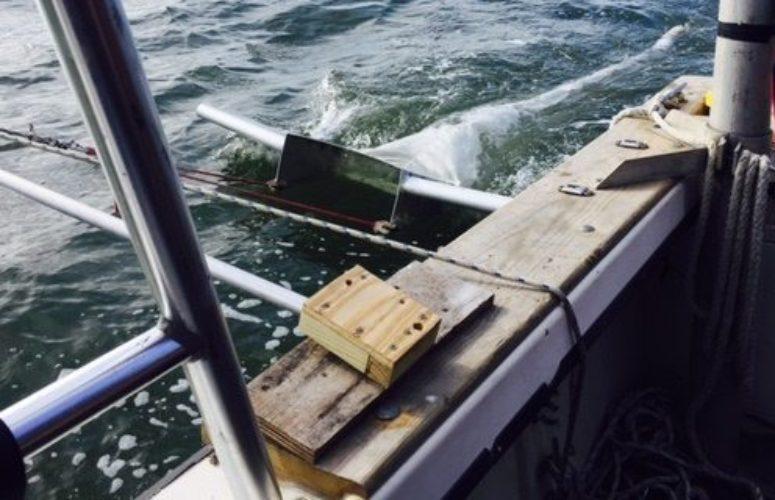
NY/NJ Baykeeper Launches First Microplastic Research Initiative and Plastic-Free Product Guide
On Apr 1, 2015NY/NJ Baykeeper along with partners and collaborators from Monmouth University’s Urban Coast Institute, The Five Gyres Institute, ClearWater, and SUNY Fredonia launched the first microplastic research initiative on March 31 within NY/NJ Harbor Estuary waters.
Using a manta trawl net, five samples were collected from the East River, Hudson River off Morris Canal, upper New York Harbor along Jersey City, Red Hook, Brooklyn, and Newtown Creek. The net is deployed off the vessel and captures floatable debris for 30 minutes. The contents are then transferred from the manta trawl net into sanitized jars and await laboratory testing and analysis.
“Although microplastics are tiny, they still pollute our waterways and have been found in the stomachs of fish and wildlife. This research project will help us explain the extent of microplastic pollution within NY-NJ Harbor Estuary waters, what it means for fish ingesting plastic, and adverse human health effects,” said Sandra Meola of NY/NJ Baykeeper who is managing the organization’s plastic reduction campaign. NY/NJ Baykeeper and partners plan to collect additional samples throughout the spring.
Urban Coast Insitute (UCI) Marine Scientist Jim Nickels said, “UCI was glad to provide assistance on this study to assess the presence of microplastics in NY Harbor.”
Plastic microbeads are used as exfoliating agents found in many toothpastes and body scrub products. Microbeads are too tiny to be filtered by waste water treatment facilities and travel from the consumer’s drain and end up discharged into waterways. From there, plastic particles act as a sponge for harmful pollutants. Fish mistake plastic particles for food, thus entering and contaminating food chains.
To bring consumer awareness to the issue, NY/NJ Baykeeper has released a plastic free personal care product guide for consumers to reference. The guide includes brands and specific products that include natural exfoliants instead of plastic. Natural exfoliants include sugar, ground nuts, jojoba, and oatmeal. Polypropylene and polyethylene are the two ingredients that denote plastic within products. The Plastic Free Product Guide can be found on NY/NJ Baykeeper’s website here.
Last month, Governor Christie signed a bill into law that would phase-out all nonbiodegradable plastic microbeads in personal care products. While this is a victory for New Jersey, NY/NJ Baykeeper says there is still work to be done. New Jersey’s microbead phase-out only includes polyethylene and polypropylene plastic microbeads, excluding bioplastics from the ban. Bioplastics can only disintegrate in high heat temperatures such as in composting facilities.
Meola said, “Essentially, this phase-out will simply allow the personal care industry to replace one harmful type of plastic with another that will still not biodegrade in New Jersey waters.”
NY/NJ Baykeeper is advocating for an amendment to the bill as well as advocating for stronger language in New York’s microbead phase-out that would apply to all plastic.



